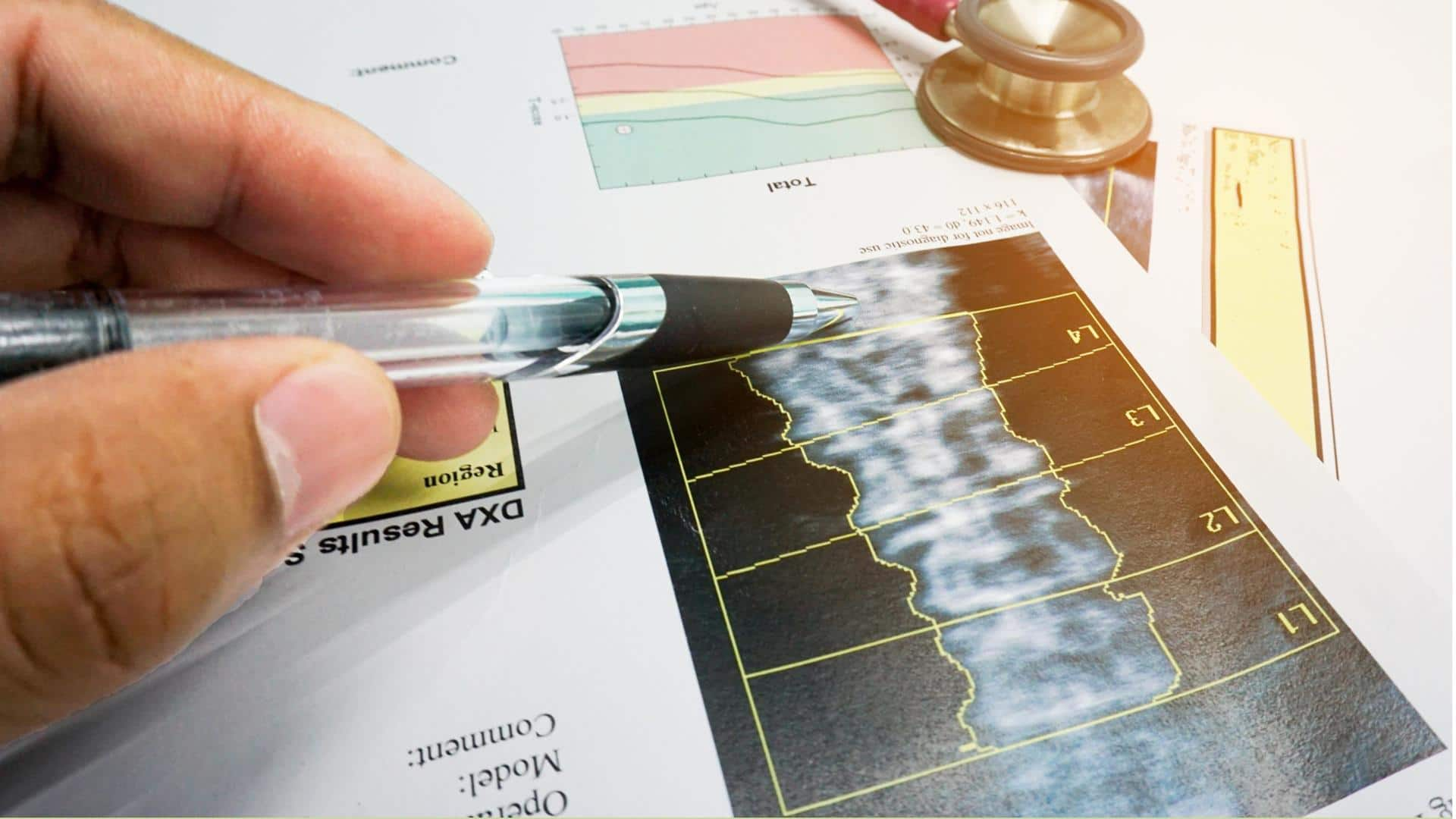
How to enhance bone density in your postmenopausal years
What's the story
Menopause brings about hormonal changes that can weaken women's bones, making them more susceptible to fractures. The decline in estrogen levels during this phase contributes to bone loss and the potential development of osteoporosis. While it is not possible to fully restore youthful bone density, adopting healthy habits can slow down the rapid thinning of bones. Here are some strategies to prevent bone loss.
Exercise
Do bone-strengthening exercises
Engaging in weight-bearing exercises such as walking, jogging, climbing stairs, hiking, playing tennis, and dancing can effectively boost bone density. Additionally, lifting weights can strengthen bones. Aim for at least 30 minutes of daily physical activity. However, if you have osteoporosis, you must consult your doctor before initiating an exercise routine. They can provide guidance on movements that may harm your spine.
Weight
Maintain a healthy weight
Having a lower body weight or a low body mass index (BMI) can result in greater bone loss as we grow older. On the other hand, obesity can give rise to health conditions like high blood pressure or diabetes, which themselves become risk factors for reduced bone density. So, it is important to maintain a healthy weight to support optimal bone health.
Diet
Eat a balanced diet
Make calcium-rich foods like milk a priority, add leafy greens for vitamin K, and include sources of vitamin D like fish, egg yolks, and mushrooms. Spending time in the sunshine helps your body absorb vitamin D as well. If you have concerns about meeting these nutritional needs, it's always a good idea to consult your doctor and discuss the potential benefits of vitamin supplements.
Drugs
Stop smoking and drinking
Using tobacco has a negative impact on bone density, making smoking a risk factor for osteoporosis. However, research reveals that quitting smoking, even in the later stages of life, can help reduce bone loss. On the other hand, excessive alcohol consumption can hinder the absorption of vital nutrients for bone health, like calcium. Moreover, overindulgence increases the likelihood of fractures resulting from falls.
Calcium
Include enough sources of calcium in your meals
Calcium plays a crucial role in maintaining bone health. To ensure an adequate intake, consume small amounts of calcium throughout the day instead of relying on one high-calcium meal. Generally, it is best to obtain calcium from your diet, unless specifically advised otherwise by a doctor. Good dietary sources of calcium include milk, cheese, yogurt, and leafy greens like kale and beans, and sardines.